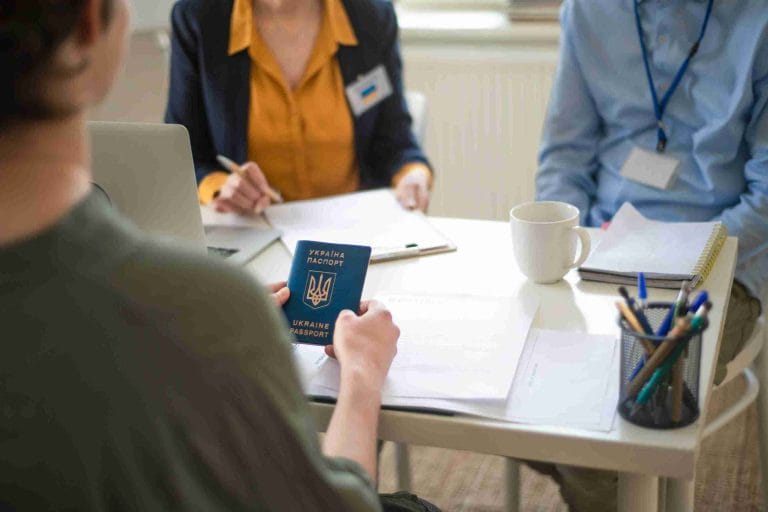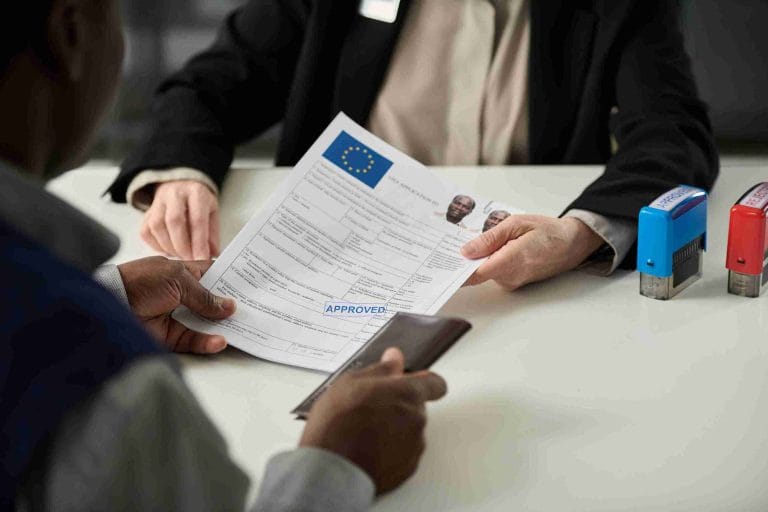Table of Contents
- Introduction
- Why People Move to the UK – And What Makes It Worth It
- Essential Things to Consider Before Relocating to the UK
- UK Visa Options: Choosing the Right Route for Your Move
- Other Routes
- Step-by-Step Breakdown of the UK Relocation Process
- Common Relocation Challenges – and How We Help You Overcome Them
- Adapting to Life in the UK: Housing, Healthcare, Banking & More
- Long-Term Immigration Planning: ILR, Naturalisation & Future Visas
- Why Choose Salam Immigration to Support Your Move to the UK?
Relocating to the United Kingdom is a major life decision — and for many, a dream come true. Whether you’re moving for a better career, access to top-tier education, to reunite with loved ones, or to launch a business in one of the world’s most dynamic economies, the UK offers unmatched opportunities. But with opportunity comes complexity.
The UK’s immigration system is known for being detailed, technical, and frequently updated. A simple error on your application, an overlooked document, or a misunderstanding of eligibility rules can delay or derail your move entirely. That’s why having expert legal support from the very start is not just helpful — it’s essential.
At Salam Immigration, we specialise in helping individuals, families, and business professionals navigate the UK immigration process with accuracy, strategy, and care. From securing the right visa to settling into life in the UK, we offer start-to-finish guidance tailored to your goals, background, and long-term plans.
Why People Move to the UK – And What Makes It Worth It
The UK remains one of the world’s most popular destinations for migrants — and with good reason. It offers a high quality of life, access to world-class education and healthcare, and opportunities across finance, tech, healthcare, and creative industries. For families, it provides a safe, multicultural environment with strong legal protections.
Whether you’re relocating permanently or temporarily, moving to the UK opens doors to personal and professional growth.
Essential Things to Consider Before Relocating to the UK
Moving to the UK involves more than just applying for a visa. You need to plan your finances, understand legal requirements, and prepare for life in a new country.
Key things to consider:
- Visa type and eligibility
- Cost of living and financial planning
- Accommodation and tenancy rules
- Opening a UK bank account
- Healthcare access via the NHS
- English language requirements
- Cultural adjustment and integration
We guide you through each of these steps, offering resources and personalised advice tailored to your background and goals.
For more information and expert advice on your specific situation, contact us online or call us on 0161 839 7396.
We’ll help you get it right from day one, legally, financially, and practically.

UK Visa Options: Choosing the Right Route for Your Move
Before you move to the UK, you must identify the correct visa route based on your personal circumstances. Choosing the wrong visa can lead to a refusal, long delays, or serious legal consequences — especially if you’re switching from a different immigration route or bringing dependants with you.
Here’s a breakdown of the main UK visa categories, including who they’re for, how long they last, and what rights they provide:
Work Visas
Skilled Worker Visa
For individuals with a confirmed job offer from a UK employer that holds a sponsor licence.
- Eligibility: You must be sponsored for a job that meets salary and skill thresholds. English language proficiency is required.
- Duration: Up to 5 years, extendable.
- Path to Settlement: Yes, after 5 years.
- Dependants Allowed: Yes (spouse/partner and children).
- Typical Applicants: Healthcare workers, engineers, IT professionals, teachers, etc.
Health and Care Worker Visa
A subcategory of the Skilled Worker route for professionals working in health or social care.
- Advantages: Reduced visa fees, exemption from the Immigration Health Surcharge (IHS).
- Fast-track processing.
Global Talent Visa
For highly skilled individuals in fields such as science, engineering, arts, humanities, and digital tech.
- Eligibility: Must be endorsed by an approved body or meet eligibility under the fast-track path.
- No Job Offer Required
- Path to ILR: As fast as 3 years in some categories.
- Ideal for: Academics, researchers, tech innovators, creatives.
Temporary Worker Visas (T5)
For short-term work, such as:
- Seasonal Workers (agriculture, hospitality)
- Charity Workers
- Government Authorised Exchange
Duration: 6–24 months, depending on subcategory. Not a route to settlement.
Student Visas
Student Visa (Tier 4)
For individuals enrolled in a recognised UK educational institution.
- Requirements: Confirmation of Acceptance for Studies (CAS), financial proof, and English proficiency.
- Duration: Matches course length plus additional months.
- Work Rights: Limited hours during term, full-time in holidays.
- Post-Study Path: Can switch to Graduate Visa or Skilled Worker Visa.
Child Student Visa
For children aged 4–17 studying at independent (private) schools.
- Duration: 2 years (3 years for PhD graduates).
- No Sponsorship Required
- Ideal for: Gaining UK work experience or preparing for a Skilled Worker Visa.
- Ideal for: Academics, researchers, tech innovators, creatives.
Family Visas
Spouse or Partner Visa
For spouses, civil partners, or long-term partners of British citizens or settled persons.
- Requirements: Genuine relationship proof, English language skills, and minimum income (£29,000+ from April 2025).
- Duration: 2.5 years (extendable), eligible for ILR after 5 years.
Fiancé(e) Visa
Allows entry for marriage within 6 months.
- No right to work
- Must switch to Spouse Visa after marriage.
Parent Visa
For a parent of a child who is a British citizen or settled in the UK.
- Must have sole or shared parental responsibility.
Child Visa
For children under 18 joining parents with settled or pre-settled status in the UK.
Business and Investment Visas
Innovator Founder Visa
For experienced entrepreneurs with viable, scalable, and innovative business ideas.
- Requires endorsement from an approved UK body.
- No minimum investment required, but funding must be viable.
- Path to ILR: After 3 years.
Start-Up Visa (closing soon)
For first-time entrepreneurs — being phased out in favour of Innovator Founder Visa.
UK Expansion Worker Visa
For employees of an overseas company expanding to the UK.
- Short-term route, not a path to settlement.
Other Routes
Ancestry Visa
For Commonwealth citizens with a UK-born grandparent.
- Work and study rights included
- Duration: 5 years
- ILR Eligible
British National (Overseas) Visa (BN(O))
For eligible Hong Kong BN(O) status holders and their families.
- 5-year route to settlement
- Work, study, and healthcare access included
Confused about which visa suits your profile? Let us evaluate your options and guide you through the best route.
Step-by-Step Breakdown of the UK Relocation Process
Relocating to the UK involves much more than just submitting a visa application. Each phase — from eligibility assessment to settling into your new home — comes with legal, logistical, and practical requirements. Salam Immigration offers structured, start-to-finish guidance.
Here’s what the full process looks like:
Step 1: Initial Consultation & Visa Strategy
We begin with a detailed one-on-one consultation where we:
- Understand your goals (e.g., long-term settlement, work, study, business)
- Review your background, documents, and immigration history
- Match your circumstances to the most suitable visa routes
Step 2: Document Collection & Application Preparation
Next, we prepare your visa application, ensuring:
- All documents are gathered and translated (if needed)
- Application forms are error-free and up to date
- Legal representations and covering letters are included
- You meet financial, English language, and accommodation criteria
We minimise the risk of refusal by submitting a legally robust, fully compliant application. Don’t risk rejection — our team ensures every detail is accurate and complete.
Step 3: Visa Submission & Biometrics
You submit the application online through the official UK government portal and attend a biometric appointment at a local visa application centre (VAC).
At this stage:
- You provide fingerprints and photographs
- You upload or submit physical documents
- We track your application and keep you informed
Step 4: Decision Notification & Visa Grant
Once your application is processed, you’ll receive a decision via email or letter. If successful:
- You’ll get a Visa Vignette sticker in your passport (valid for initial entry)
- After arriving in the UK, you’ll collect your Biometric Residence Permit (BRP) or digital visa
We’ll guide you on:
- Travelling to the UK
- Collecting your BRP
- What to do if your visa is delayed or refused

We stay with you right up to — and beyond — your arrival.
Step 5: Post-Arrival Support in the UK
Your journey doesn’t end when you land. We continue supporting you by:
- Helping you register with a GP and the NHS
- Assisting with tenancy agreements and council registration
- Advising on setting up a bank account and National Insurance number
- Supporting your dependents (school enrollment, healthcare, etc.)
Step 6: Long-Term Planning — Extensions, ILR & Citizenship
After you’re settled, we help you plan for the future:
- Switching visas (e.g. Student to Skilled Worker)
- Extending your current visa
- Applying for Indefinite Leave to Remain (ILR)
- Applying for British Citizenship after 5–6 years
Common Relocation Challenges – and How We Help You Overcome Them
Many individuals struggle with:
- Incorrect or incomplete visa applications
- Delays due to missing documents
- Failing to meet financial or language requirements
- Cultural and legal misunderstandings once they arrive
At Salam Immigration, we tackle these head-on by offering:
- Expert document review and legal submission
- Templates and checklists tailored to your visa type
- Translation and certification services
- Ongoing legal support even after you arrive
Avoid common mistakes — we make your move legally sound and stress-free.
Adapting to Life in the UK: Housing, Healthcare, Banking & More
Living in the UK can be a big transition — but a rewarding one. From navigating public transport and understanding British customs to registering with the NHS and setting up utilities, there’s a learning curve.
We help you adapt faster by offering:
- Orientation advice for newcomers
- Referrals for relocation services
- Support with legal registrations (NHS, GP, schools, banks)
- Advice on housing, tenancy agreements, and council tax
Long-Term Immigration Planning: ILR, Naturalisation & Future Visas
Once you’re in the UK, your journey isn’t over — it’s just beginning. Many visa holders later qualify for:
- Indefinite Leave to Remain (ILR) after 5 years
- British Citizenship through naturalisation
- Visa switching or extensions to stay longer
We offer full legal support for:
- ILR applications
- Citizenship applications
- Switching to a different visa category
- Planning your long-term immigration strategy
This means that two children aged under 10 years can share one room, and babies under one year old can live in the same room as the couple.
We don’t just help you move — we help you stay, settle, and succeed.
Why Choose Salam Immigration to Support Your Move to the UK?
- Fully accredited immigration solicitors with a proven track record
- Personalised strategies — no one-size-fits-all approach
- Expert guidance from your first consultation to final settlement
- Fast responses, accurate documentation, and legal representation
- Clear pricing and flexible support for individuals, families, and businesses
When your future depends on getting it right, choose the team that delivers results.









